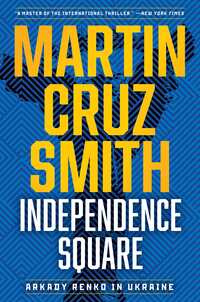Sidle Creek by Jolene McIlwain
 Friday, May 12, 2023 at 8:02PM
Friday, May 12, 2023 at 8:02PM 
Published by Melville House on May 16, 2023
The stories collected in Sidle Creek are joined by their setting — the fictional Sidle Creek in Appalachia. It is a place where townies keep their business to themselves, where women are routinely abused and men try to avoid deep thought about troubled lives.
The most powerful story is about a stripper who is raped, a dog that is shot, an unmarked grave in the woods, and a man who lacked the courage to stop any of it. Videos eventually surface showing several people of both genders being abused by hunters at a campsite. The story unfolds from multiple perspectives, each contribution building the reader’s understanding of what happened to two girls and how a town where secrets are kept reacted to rumored truths.
In my favorite story, the disappearance of a waitress causes paranoia among the restaurant’s male staff and customers (primarily miners and iron workers) as they wonder whether they are suspected of foul play. Customers are fond of red boots the waitresses wear and are willing to tolerate the restaurant’s gay owner because he hires pretty waitresses. The owner is haunted by the fear that he failed to keep an employee safe. The solution to the disappearance reveals that bad acts can be more sad than nefarious.
In the most poignant story, a man begins to “count random things to pilot his days” after he loses his wife. Living alone on wooded land, he has fallen in love with a doe that occasionally visits his property, an animal he feels an obsessive need to shield from death.
Another strong story revolves around a semi-literate man who breeds pit bulls for fighting. The man has an obsessive desire to be regarded as respectable, a condition he associates with wealth. He decides that having his boys fight each other in bare knuckled brawls is a step up from dog fighting. The story gives new meaning to the concept of unfit parenting.
Several stories highlight the theme of meanness that is ingrained in the characters. A man recalls his childhood, when his angry father dragged a steer behind his pickup truck to punish the steer for wandering away. A priest threatens boys with the paddle when they make “pizzle” the world of the day. A young man on a motorcycle watches a woman with a knife try to steal a baby from a pregnant woman.
Other stories focus on the sadness of desperate lives. An Amish carpenter’s wife tells him that the coffin he built for their son is too small, as if “she thought her love for him might expand his small body.” Sixth grade girls try to puzzle out the mysteries of pregnancy by observing a woman who had four miscarriages in the last seven years, but they instead learn to cope with fear of the unknown. A young woman finishes having sex with a man she can picture making a life with, but then knows she has to hop in her car “and drive far as I can get if I ever want to be anything that ain’t a few steps away from crazy.”
Some stories defy categorization. City council members want to learn the stories of a reclusive woman by condemning her house. A man learns from his Vietnamese wife how to read unfortunate future events from markings on eggs.
Several stories are snapshots of a time and place. Vignettes don’t appeal to me. I like stories to be full meals, or at least a main course, not a meager slice.
I appreciate the cumulative sense of atmosphere that the Winesburg, Ohio approach to storytelling creates. I also appreciate Jolene McIlwain’s ability to portray characters in a sympathetic light despite their limitations and flaws. She doesn’t stereotype or judge. Her prose is precise and fluid but never showy. The collected stories are uneven — the four I’ve highlighted struck me as occupying a higher level than the rest — but taken as a whole, they showcase McIlwain’s undeniable talent.
RECOMMENDED



